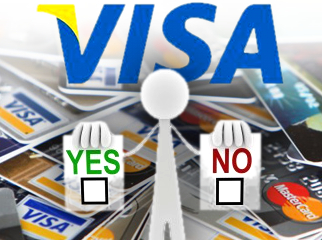 Credit card company VISA has informed its merchants and processors that not all online gambling transactions are created equal. In a Feb. 21 bulletin to its acquirers, issuers, processors and agents, VISA stated that while the Unlawful Internet Gambling Enforcement Act (UIGEA) made processing payments for “unlawful” online gambling companies illegal, “issuers are reminded that not all transactions coded with Merchant Category Code (MCC) 7995 are from unlawful Internet gambling merchants.”
Credit card company VISA has informed its merchants and processors that not all online gambling transactions are created equal. In a Feb. 21 bulletin to its acquirers, issuers, processors and agents, VISA stated that while the Unlawful Internet Gambling Enforcement Act (UIGEA) made processing payments for “unlawful” online gambling companies illegal, “issuers are reminded that not all transactions coded with Merchant Category Code (MCC) 7995 are from unlawful Internet gambling merchants.”
Besides online gambling, the 7995 code encompasses purchases of everything from lottery tickets to casino chips to off-track betting wagers. The online poker companies indicted on Black Friday were accused of deliberately miscoding their customers’ transactions as sales of golf balls and other innocuous items in order to circumvent the UIGEA’s prohibitions. But with state lotteries taking their action online and the recent launch of the first Nevada-licensed online poker site – which includes Mastercard among its deposit options – the credit card companies are being forced to modify their approach.
To help its clients stay compliant, VISA has announced that its Internet Gambling Stand-In Processing (STIP) Blocking Service “is able to differentiate between legal and potentially illegal gambling transactions.” Merchants wishing to offer gambling clients the option to pay via credit card are encouraged to make use of VISA’s Merchant Verification Value (MVV) Registration Program, which assigns a specific MVV code to merchants that have been “validated by their acquirers as processing legal transactions.”
In order to be validated, a merchant has to provide evidence of proper legal authority for the gambling in question, a legal opinion stating the merchant’s compliance with all applicable state and federal laws, third-party certification that the merchant has sufficient systems and controls to ensure the business stays within lawful limits, plus a $5k registration fee. It will likely be a while before all financial institutions take note of VISA’s guidance and adjust their behavior accordingly, but given the tortoise-worthy pace of online gambling liberalization in the United States, they’ve got plenty of time.
